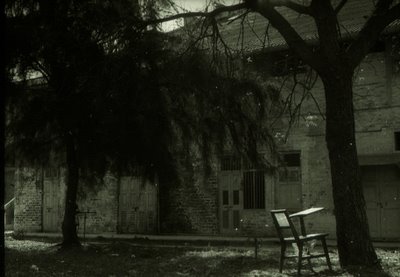
I watched Steamboy a couple of weeks ago and have been meaning to write about it. The DVD was released only late last year. I bought it in Feb – a 75-buck version – but have only just got around to watching it. Let me be the first to admit that this was the first animé film I’d ever seen; I know less than nothing about the genre, and I don’t intend to make uneducated comparisons with the tiny sliver of animé that features in Kill Bill Vol.I.
Steamboy is what the blurb on the DVD calls retro-sci-fi. Made by Japanese manga author and animé director Katsuhiro Otomo, it is the story of Ray Steam, a third generation scientific genius, whose grandfather gives him a mysterious steamball to deliver to the very real Robert Stephenson. Set in Manchester and London in the year 1866, Steamboy is not only an anti-war allegory, it is a cautionary tale of the dangers of science when it becomes dislocated from morality.
Though the film is about technology, there is something magical about what this technology can do; the dangerous whiff of sulphur is never far from the gloomy, towering machines – zeppelins that fly, submarines that wage war at sea – devilish engines of war and destruction.
And with the magic comes the horror of what cannot be controlled, of a creation that becomes larger and more powerful than the creator. Through the film, Ray is witness to the opposing views of his father and grandfather. His father intends to be high priest of the new religion, technology; his grandfather believes that science is neutral and unless the person wielding its power is ready to use it morally and for the benefit of humankind, only evil will result. Ray has to choose between these and other positions.
Now, though I’ve never watched animé, I’ve watched enough Cartoon Network and Jetix and Disney (which for reasons I don’t understand appears not to qualify as animé) so maybe I’ve grown used to reasonably sophisticated animation. I can’t bring myself to wax lyrical over the movement of waves or the billowing steam. When Otomo’s first animé feature, Akira came out in 1988, it was supposed to have stunned the world. Almost twenty years later, Steamboy doesn’t seem anything out of the ordinary.
If anything – because the subject is another country and age – the film suffers from stilted dialogue and a lack of expressiveness. No doubt because of the Inscrutable Occidental.
The reason I picked it up at all was because it said ‘retro sci-fi’; I was intrigued. There is something fascinating about superimposing the world as it is today, over the past and waiting to see what happens. In Steamboy, the future is not dragged kicking and screaming into the past; it is already there. What the film really says is, what if all of todays’ technology had already been realised a century or more earlier. Would things have been worse today? Or better, because Science was a temple we worshipped at, which still retained an aura of the mystical and god-given? These are questions the film answers in a moralising, heavy-handed way.
I believe what I have is the longer version of the film. It was dubbed as well as subtitled. And really, I can’t decide which is worse. The dialogues in English are uninteresting and flat while the subtitles appear to tell an entirely different story.

